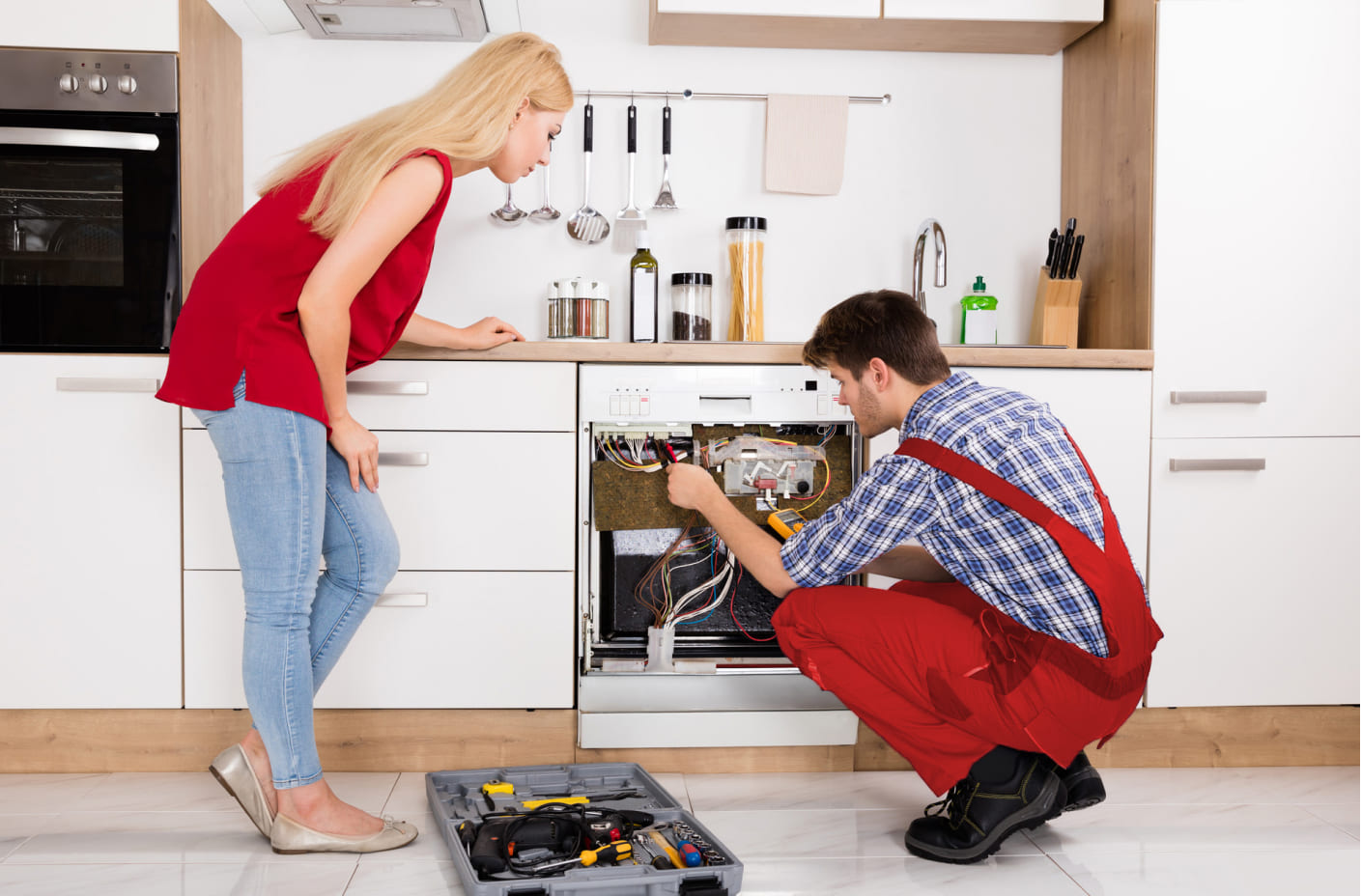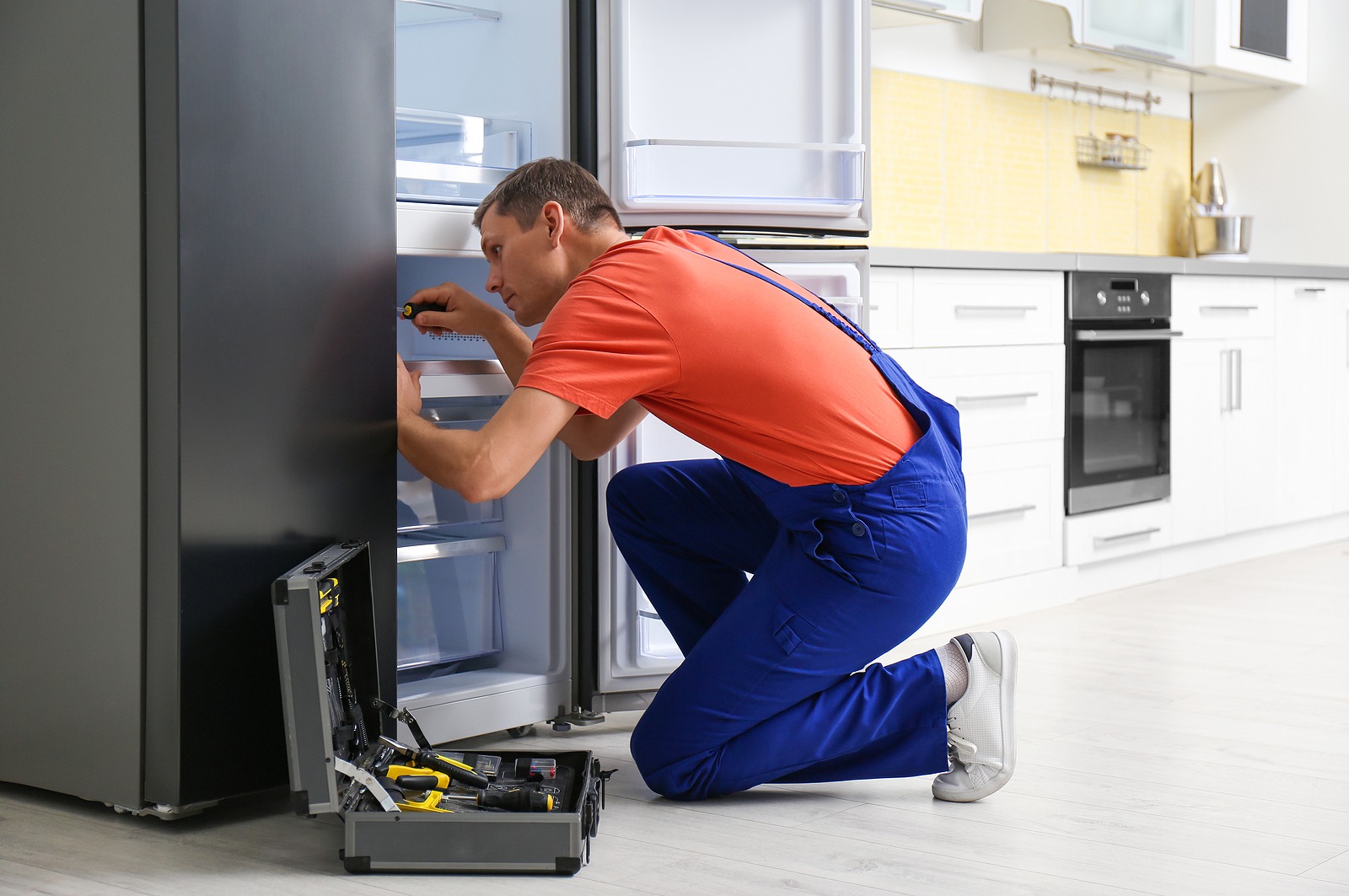Why Your Washing Machine Won’t Drain – Dependable Refrigeration & Appliance Repair Service Washing Machine Repair
Why Your Washing Machine Won’t Drain – Dependable Refrigeration & Appliance Repair Service Washing Machine Repair
Blog Article
The Ultimate Overview to Comprehending Appliance Repair at Home
When your fridge stops cooling down or your stove rejects to heat, it can feel frustrating. Understanding appliance repair work at home can conserve you time and cash. You'll discover to recognize signs and symptoms, utilize crucial devices, and follow a systematic troubleshooting process. Yet before you start, there are essential safety and security preventative measures you require to take right into account. What are the most common problems, and exactly how can you fix them? Allow's discover the basics.
Common Home Appliance Issues and Their Symptoms
When your home appliances begin acting up, it's vital to identify the signs beforehand. Overlooking them can cause larger concerns and costly repair services. If your refrigerator isn't cooling down effectively, you could discover warm spots or condensation developing. This could suggest a falling short compressor or a blocked vent.Your dishwashing machine might show problems through dirty dishes or uncommon sounds during cycles. If you listen to grinding or clanking, it's time to investigate.A washing device that won't spin or drain can leave you with soaked washing, recommending a clogged drain or a malfunctioning pump.Lastly, if your stove's temperature seems off or it takes forever to preheat, you could be taking care of a faulty thermostat. By remaining sharp to these signs and symptoms, you can resolve concerns before they intensify into significant repair work.
Essential Devices for Appliance Fixing
When you're tackling appliance fixings in the house, having the right tools is essential. Standard hand tools like screwdrivers and pliers will certainly assist you take apart and deal with different devices, while electrical testing tools guarantee you're functioning safely with wiring. Allow's go over what you require to start on your repair journey.
Standard Hand Devices
Having the right devices is necessary for reliable appliance repair work in your home. Start with a dependable screwdriver collection, including both flathead and Phillips types, as screws prevail in home appliance setting up. Pliers are likewise crucial; they aid with gripping, turning, and cutting cords or tiny elements. A set of needle-nose pliers can get to limited places conveniently. You'll require a great flexible wrench for tightening up or loosening nuts and screws. An energy blade is helpful for reducing via product packaging or insulation. Ultimately, don't forget a strong workbench or surface area to safely arrange your devices and components. With these standard hand tools, you'll be well-prepared to deal with most device repair services that come your way.
Electrical Testing Gadgets
Alongside standard hand tools, electrical screening devices play an essential duty in device repair work. These devices help you detect electrical problems and guarantee home appliances operate securely. A multimeter is important; it determines voltage, present, and resistance, enabling you to determine troubles rapidly. A non-contact voltage tester is one more must-have, allowing you identify online cables without making direct call, enhancing your safety. Secure meters are terrific for gauging existing circulation in cables without separating them, conserving you effort and time. Furthermore, circuit testers can rapidly inspect if electrical outlets are working effectively. By utilizing these tools, you'll simplify your troubleshooting procedure and enhance your repair work skills, making device upkeep a great deal less complicated.
Step-by-Step Overview to Diagnosing Home Appliance Issues
When your appliance breaks down, it can be discouraging, however detecting the issue doesn't have to be overwhelming. You'll learn to identify common troubles and use reliable troubleshooting methods. Allow's go through the actions to obtain your appliance back in working order.
Usual Appliance Problems

Repairing Strategies Explained

Repairing Significant Kitchen Area Devices: A Closer Look
Have you ever before asked yourself exactly how to deal with typical issues with your kitchen home appliances? Repairing significant kitchen home appliances like fridges, stoves, and dishwashers can be easier than you believe. Start by recognizing the issue-- whether it's a refrigerator not cooling or an oven that won't heat. Commonly, an easy reset or examining the source of power can fix the issue.For refrigerators, tidy the condenser coils and inspect the door seals. If your stove's not heating, examine the burner and thermostat. Dish washers might simply require a tidy filter or a reset to get them back in activity. Always unplug the device before diving right into repairs to ensure your safety.Don' t neglect to seek advice from the customer manual for certain troubleshooting ideas related to your design. With a little patience and the right tools, you can with confidence tackle home appliance fixings and save money while doing so!

Repairing Laundry Devices: Tips and Techniques
When your laundry appliances start acting up, it can feel frustrating, yet fixing them does not have to be a problem. Begin by examining the power supply. Confirm the home appliance is plugged in and the outlet is operating. Next, check the door or cover switch; a damaged switch can stop the machine from operating.For washers, if it's not rotating, look for unbalanced tons. Rearranging the clothes may address the issue. If your clothes dryer isn't home heating, clean the lint filter and inspect the air vent for blockages.Listen for unusual noises; they can suggest a trouble. If your appliance is dripping, examine the hoses for fractures or have a peek at this site loosened links. Document any type of mistake codes presented on electronic screens, as they can guide you in identifying the concern. Ultimately, get in touch with the user manual for particular fixing pointers connected to your version.
Security Precautions to Take During Repair works
Before you start any appliance repairs, it's necessary to prioritize safety to avoid accidents or injuries. Unplug the appliance or transform off the circuit breaker to assure no power reaches it while you function. Use insulated tools to reduce the threat of electric shock. Use security goggles and handwear covers to shield on your own from sharp edges or debris (Dependable Refrigeration & Appliance Repair Service Dryer repair near me).Make specific your work area is tidy and well-lit, so you can see what you're doing. Maintain youngsters and animals far from the area to stay clear of diversions and prospective risks. If you're managing gas home appliances, be extra careful; look for leaks prior to proceeding.Take your time, and don't hurry through fixings. If you really feel unpredictable concerning any type of action, it's better to stop briefly and research study than to think. Following these safety measures will certainly help create a much safer environment for your DIY home appliance fixing project
When to Call a Professional for Assistance
Exactly how do you recognize if it's time to hire an expert for device fixings? If you've attempted standard troubleshooting without success, it's a clear sign. If your appliance still won't start or reveals unusual noises after resetting it, do not wait to seek professional help.When you see leaks, smoke, or shedding smells, prioritize safety and security and call a pro instantly. These problems can bring about more substantial damage or pose threats to your home.Also, if your appliance is under service warranty, getting in touch with a professional is often the very best course. They can guarantee that repair services won't invalidate your service warranty, saving you cash in the long run.Finally, if you're unclear or uncomfortable with intricate fixings, it's important to leave it to the specialists. Bear in mind, taking on complicated issues without the ideal knowledge can cause costly errors. Count on a specialist when unsure!
Often Asked Concerns
How Can I Protect Against Device Issues in the Future?
To stop home appliance issues in the future, you ought click this link to do regular maintenance, check for wear and tear, clean filters, and prevent overloading. Staying aggressive will certainly help expand their life expectancy and maintain them running efficiently.
What Are the Many Common DIY Device Fixing Mistakes?
You may overlook safety precautions, miss repairing steps, or use wrong devices when attempting DIY device repair work. Rushing the procedure or overlooking maker guidelines can cause even more substantial concerns and pricey errors. Stay individual and educated!
Exactly how Do I Know if a Component Requirements Replacement?
You can tell if a part requires substitute by looking for uncommon sounds, leaks, or irregular efficiency. If the home appliance struggles to run correctly or reveals noticeable damages, it's likely time for a replacement.
Can I Use Generic Parts for Home Appliance Services?
Yes, you can make use of generic components for appliance fixings, yet establish they're compatible - Dependable Refrigeration & Appliance Repair Service Washing Machine Repair. Common components could save you money, yet they might affect performance or durability, so evaluate your alternatives very carefully before deciding
What Service Warranties Cover Appliance Fixes?
The majority of home appliance guarantees cover repairs for manufacturing problems, yet they commonly omit damage from misuse. Examine your guarantee terms carefully, as some could call for utilizing qualified specialists and initial components for insurance coverage to continue to be valid.
Report this page